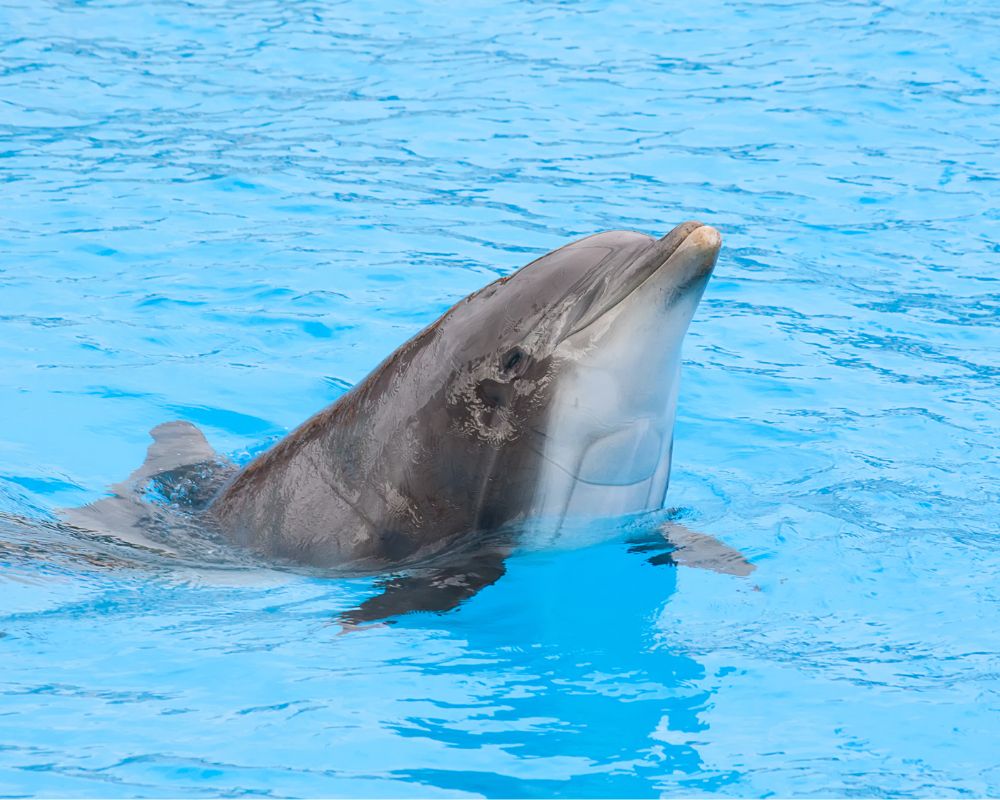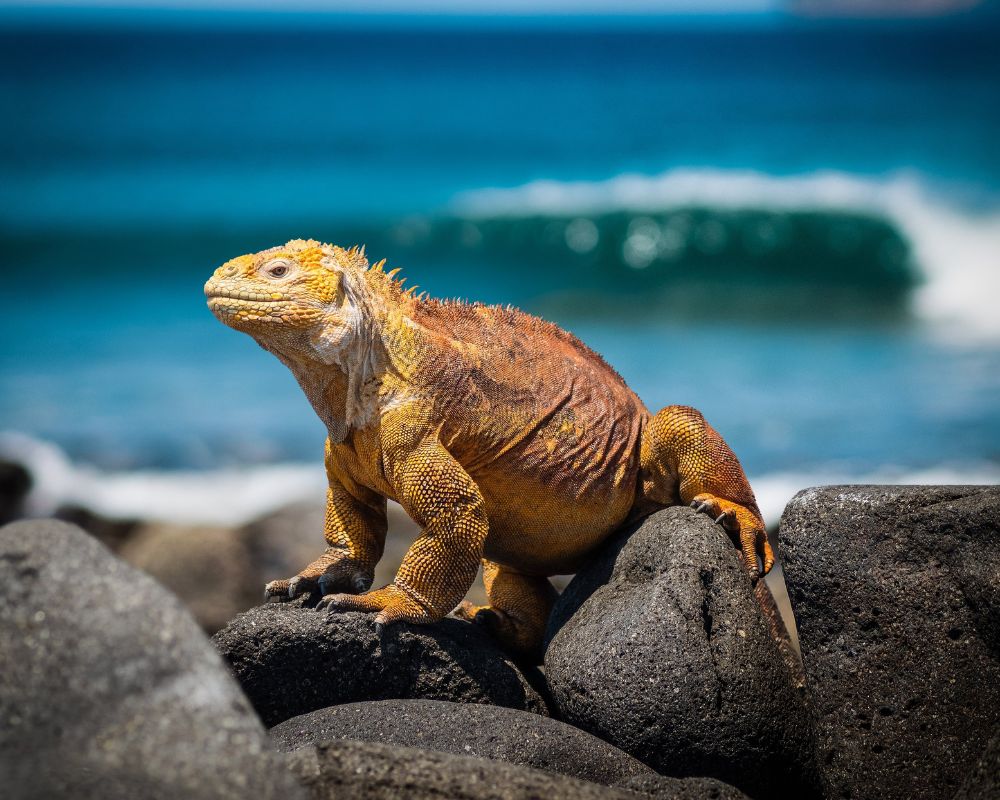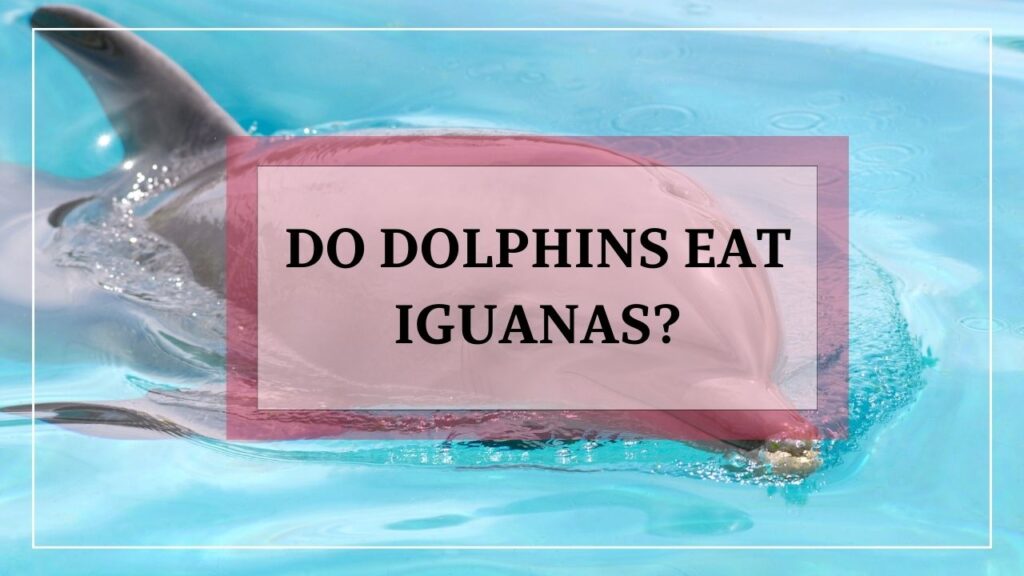One of the most interesting things about the ocean’s ecosystem is the diverse range of species and their unique eating habits.
Dolphins, in particular, are known for their playful nature, intelligence, and remarkable hunting skills. However, the question that comes to mind for many people is, do dolphins eat iguanas?
In this blog post, we will explore the diet of dolphins and iguanas, their interaction in the wild, and the factors that influence their eating habits. We will also discuss the risks involved with eating dolphins and how it impacts their health.
Do Dolphins Eat Iguanas?


Let’s get straight to the point – yes, dolphins have been known to eat iguanas! While it may seem surprising that a marine mammal would go after a land-dwelling reptile, studies have shown that dolphins are opportunistic feeders and will eat a wide variety of prey if it is available to them.
Now, you may be wondering how exactly a dolphin would manage to catch an iguana on land. While it is rare, there have been instances where dolphins have been observed swimming up rivers and into estuaries where iguanas live. In these cases, the iguanas may fall into the water or be swept away by strong currents, making them an easy target for the dolphins.
It’s important to note that while dolphins may eat iguanas, it is not a common occurrence. Dolphins primarily feed on fish, squid, and crustaceans that are found in the ocean. However, their opportunistic feeding habits mean that they will eat a variety of prey if it is readily available.
Researchers have also suggested that the reason why dolphins eat iguanas may have to do with their high nutritional value. Iguanas are rich in protein and fat, making them a nutritious meal for the dolphins.
Despite the evidence of dolphins eating iguanas, it’s worth noting that it is still a relatively rare occurrence. Dolphins’ primary source of food is in the ocean, and they are well-adapted to hunting and catching fish and other sea creatures. However, their opportunistic feeding habits mean that they are always on the lookout for new food sources, including iguanas.
Factors that Determine Whether or Not Dolphins Eat Iguanas
While we now know that dolphins can eat iguanas, it’s important to understand the factors that determine whether or not this actually happens. Here are three main factors:
Geographic Location
The first factor that determines whether or not dolphins eat iguanas is their geographic location. As mentioned earlier, dolphins have been observed eating iguanas in estuaries and rivers, where iguanas are known to live. However, this doesn’t mean that all dolphins around the world eat iguanas.
Dolphins are found in oceans all over the world, and their primary source of food is ocean prey. So, if a dolphin population lives far from where iguanas are found, they are unlikely to ever encounter them.
Availability Of Prey
The second factor that determines whether or not dolphins eat iguanas is the availability of prey. Dolphins are opportunistic feeders, meaning they will eat whatever prey is available to them. So, if a dolphin population is living in an area where their usual prey is scarce, they may turn to other food sources, such as iguanas.
On the other hand, if their usual prey is abundant, they may not have any reason to hunt for iguanas.
Behavioral Patterns
The third factor that determines whether or not dolphins eat iguanas is their behavioral patterns. Dolphins are highly intelligent creatures, and their hunting behavior is influenced by a variety of factors, including the behavior of their prey.
If iguanas are known to be elusive or difficult to catch, dolphins may be less likely to target them. Conversely, if iguanas are easy to catch and pose little threat to the dolphins, they may be more likely to hunt them.
Risks of Eating Iguanas to Dolphins
While it’s possible for dolphins to eat iguanas, there are some potential risks involved. Here are a few things to keep in mind:
Poisonous Iguanas
Some species of iguanas, such as the green iguana, are known to be poisonous. While humans can still safely eat these iguanas by properly preparing and cooking them, dolphins may not have the same ability to detoxify the toxins found in the iguana’s flesh. This means that if a dolphin eats a poisonous iguana, it could make them sick or even kill them.[1]
Ingestion Of Bones And Spines
Iguanas have a lot of small bones and spines that could potentially harm a dolphin if ingested. While dolphins have powerful digestive systems that can break down many types of food, it’s still possible for them to choke on or be injured by ingesting bones or spines from an iguana.
Disturbance To Ecosystems
Another potential risk of dolphins eating iguanas is the disturbance it could cause to ecosystems. While iguanas are not typically considered keystone species, they still play an important role in their ecosystems by controlling vegetation and serving as prey for other animals. If dolphins start regularly eating iguanas in a particular area, it could disrupt the balance of that ecosystem.
In conclusion, while dolphins can eat iguanas, there are some risks involved. Poisonous iguanas, ingestion of bones and spines, and disturbance to ecosystems are all potential issues that could arise. However, it’s important to remember that these risks are not unique to iguanas – dolphins face similar risks when eating many other types of prey as well. Ultimately, it’s up to the dolphins to decide whether or not iguanas are a suitable food source for them.

